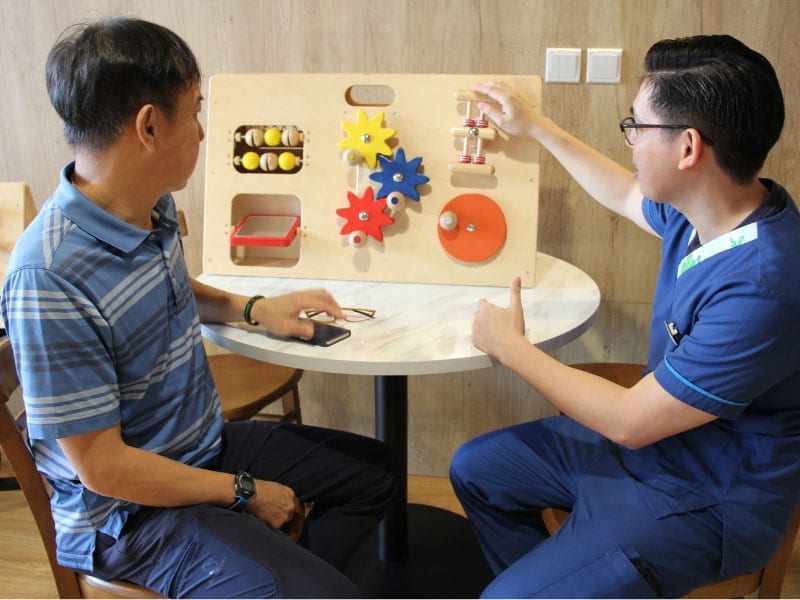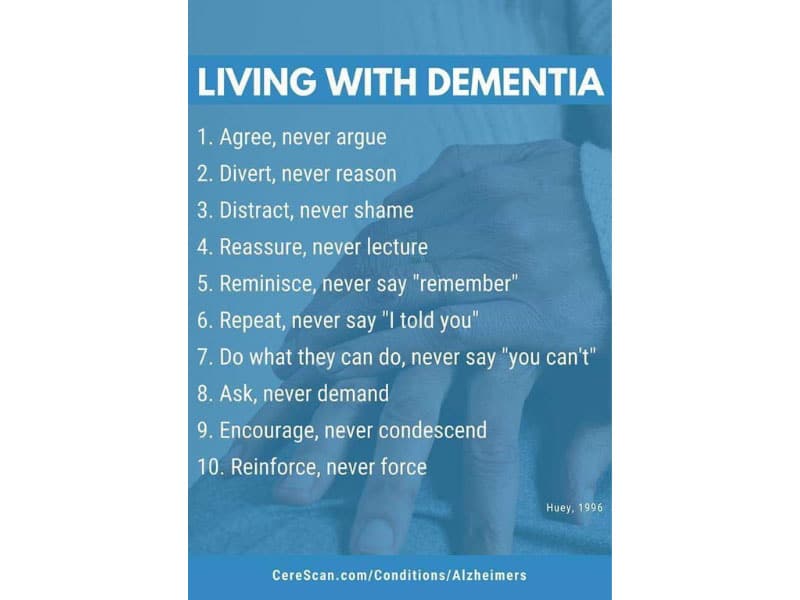Former sales director Jack Wong was at a crossroad between family and work. When his mom was diagnosed with dementia, he decided to take the road less traveled.
Above: Jack and his sister spend time with his mom at Assisi Hospice during her final moments.
It’s a Monday morning when I arrive at Assisi Hospice. I’m soon introduced to Jack. Exuding warmth, he explains that his face is swollen due to a tooth problem. Others around him look alarmed, but he shrugs it off and appears unfazed – hinting at the tenacity that drove him throughout his mom’s ordeal.
“10 years ago, mom was diagnosed with mild cognitive impairment (known as the beginning stage of dementia). She took a long time to accept that she was forgetting things and that physically she wasn’t getting well enough.” 3 years later, as the situation worsened, he realised that he couldn’t work and look after her at the same time. “I couldn’t do either of it well enough,” Jack confessed.
“I had two sales units to look after. Work wasn’t going to let me go, but it felt like I couldn’t give my staff or workplace full attention. For the next 7 years, I used my savings to take care of us both.”
A family-oriented man with a strong sense of duty, you could say Jack got these traits from his mom. “My maternal grandparents passed away when mom was around 10. Even then, she took it upon herself to take care of her siblings. Looking after the family is her main occupation in life.”
This made me wonder: What happened when dementia made her lose purpose? What happened if independence and strength were key parts of her identity?
“I knew mom would insist on doing things herself. If we changed too drastically, it would be depressing – and greatly upset her. I did it slowly, let her accept [it] and change by herself.”

Transitioning from taking care of others to being taken care of didn’t come easy for Jack’s mom. To help her cope, Jack shared how it was important to position that he was not doing things just for her. “If you are cooking for her, you say ‘I want to try cooking something new’. Every family member has a clear role, and hers was being the ‘Empress Dowager’.”
Things were not easy. His mom would forget to turn off the taps and lights. She would insist on going to the market herself, then forget her way home. She’d go downstairs to buy the newspaper, then forget which paper to buy.
Once in a fit of frustration, Jack smashed a kitchen cabinet door. But what kept him going was how his mother never forgot family. She’d forget when her sister and daughter had returned to London, but would remember to ask Jack to buy food or items for them. “Since she couldn’t take care of them anymore, she delegated me to do so! I had to constantly remind her that they weren’t in Singapore.”
“What made it worthwhile was when there’s a special moment after you do something for her, and she’d smile and say ‘thank you.’ I know she recognised that it was her son.” This was especially meaningful as Jack’s mom was not an expressive person. Growing up, he rarely received praise.

Jack didn’t go to dementia support groups or meetups. “I read stuff online about looking after someone with dementia. It was helpful for setting up useful activities and a conducive environment, but there was no one-size-fits-all that resonated with my situation as a sole caregiver to a dementia patient who didn’t want outside help.” Rather than applying any particular technique, it was the feeling of taking care of a family member that became his anchor.
Jack has no regrets. Whilst a lot of his friends and colleagues initially thought he was crazy for giving up his job and lifestyle, his faith in God provided reassurance. He also sought relief through running.

He found opportunities to run such as when his mom was warded at Assisi Hospice or when other family members returned from overseas to periodically assist with taking care of her. He takes trail running as a metaphor for life. “Life is not a flat road that’s nice and easy. The rocks, terrains, slopes, sand… reflect the messiness and uncertainties that constitute life.”
After she passed away earlier in January, he has been able to find peace and reflect on it as a humbling experience. He advises: “If you are a sole caretaker, don’t be arrogant. Don’t be self-righteous. Think of the patient. Mom was pleased when she first entered Assisi Hospice. She asked ‘Am I in a country club?’ when she saw the nursing officers’ uniforms. It’s not just about the facilities, but also about the way the nurses treat the patience and interact with caregivers such as myself. It’s beyond being functional, and that’s why I wish there will be more places like these in Singapore for end-of-life care.”

He described that the care provided by the team was “beyond what he could have given her”. He said, “I did not realise then, but I was actually suffering from burnout. Knowing that she was well-taken care of, I could finally get more sleep. I had more time to sit down and hold her hand, talk to her and just be with her.”
There is no right or wrong in caregiving. And caregiving at end of life can be the kampong way, with caregivers surrounded by support from others.





















